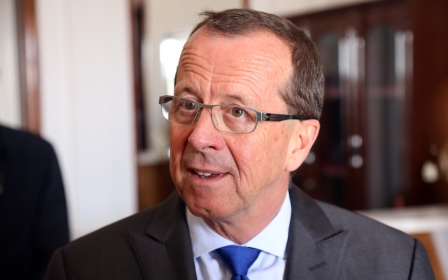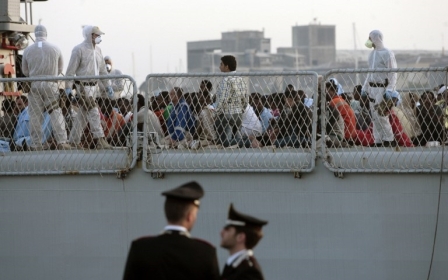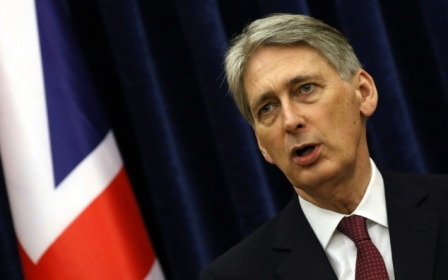Breakaway Libyan oil sale attempt fuels partition fears

An oil company allied to one of Libya’s rival governments has attempted to sell oil for the first time, contravening UN resolutions governing crude sales in the country, according to the internationally recognised National Oil Corporation (NOC) in Tripoli.
The eastern-based House of Representatives (HoR) has failed to approve the UN-backed unity Government of National Accord (GNA) in recent weeks.
On Monday, however, its own oil company - which is also operating as the NOC - loaded 650,000 barrels of oil onto a tanker at the Marsa el-Hariga terminal in the country's east.
The Distya Ameya tanker sailed to Malta on Monday where its cargo was due to be sold to DSA Consultancy FZC, an oil company based in the United Arab Emirates, a country that has provided material and political support to the HoR.
Earlier in the day, the tanker's tracking system was turned off so its movements were hard to follow but on Tuesday afternoon, reports emerged that Malta has refused the cargo.
The internationally recognised NOC said in a statement released on 22 April that any sale by the parallel eastern-based NOC would contravene UN Resolution 2278, which states that only it can sell Libya’s oil.
As Malta has now reportedly done, any UN member state would be able to block the reported illegal sale, said Libya analyst Mattia Toaldo.
“Firstly, any UN member state can intercept the vessel, seize it and return it to the legitimate government,” said Toaldo, a senior fellow at the European Council for Foreign Relations.
As an example, he cited the seizure of an oil tanker by the United States in 2014 whose cargo anti-government rebels had tried to sell in contravention of UN Resolution 2278.
“Secondly, the payment is likely to go through the SWIFT (banking) system which is based in Brussels and monitored by the US. This gives leverage to the West to block this if they want.”
UN envoy to Libya Martin Kobler told MEE on Saturday that he did not expect the eastern-based oil company to sell crude because “importers cannot afford to take illegal oil”.
The US embassy said on Monday that it was “very concerned” about the attempted sale and it reiterated that “all purchases of Libyan oil must continue to be through the Tripoli-based National Oil Corporation".
Libya has Africa’s largest oil and gas reserves, which provides 99 percent of government income. Since the NATO-backed 2011 revolution that overthrew long-time leader Muammar Gaddafi, oil production has plummeted from 1.6m barrels a day to just 360,000 barrels.
The dramatic fall in oil production has been the result of a brutal civil war that has been fought since 2011 and which has seen various militias and governments battle for control of the country.
Since late 2014 Libya has been governed by two rival administrations, one based in the east, the HoR, and the other situated in Tripoli, the General National Congress. Both have had their military backers, with the HoR allied to the Libyan National Army, which is headed by the veteran General Khalifa Haftar, and the GNC supported by the now fractured militia alliance of Libya Dawn.
The UN brokered a peace agreement in late 2015, which established the GNA to be based in Tripoli, but this unity government is yet to start work, in part because of the HoR’s failure to vote on approving it.
Toaldo said that if the eastern government’s attempt to sell oil goes through it could have serious ramifications for the future of Libya.
“If this shipment is not blocked, it would send a very powerful signal that the East of Libya can have its own financial resources and work towards de facto partition, on the lines of what the Iraqi Kurdistan has been doing now for decades.”
New MEE newsletter: Jerusalem Dispatch
Sign up to get the latest insights and analysis on Israel-Palestine, alongside Turkey Unpacked and other MEE newsletters
Middle East Eye delivers independent and unrivalled coverage and analysis of the Middle East, North Africa and beyond. To learn more about republishing this content and the associated fees, please fill out this form. More about MEE can be found here.




